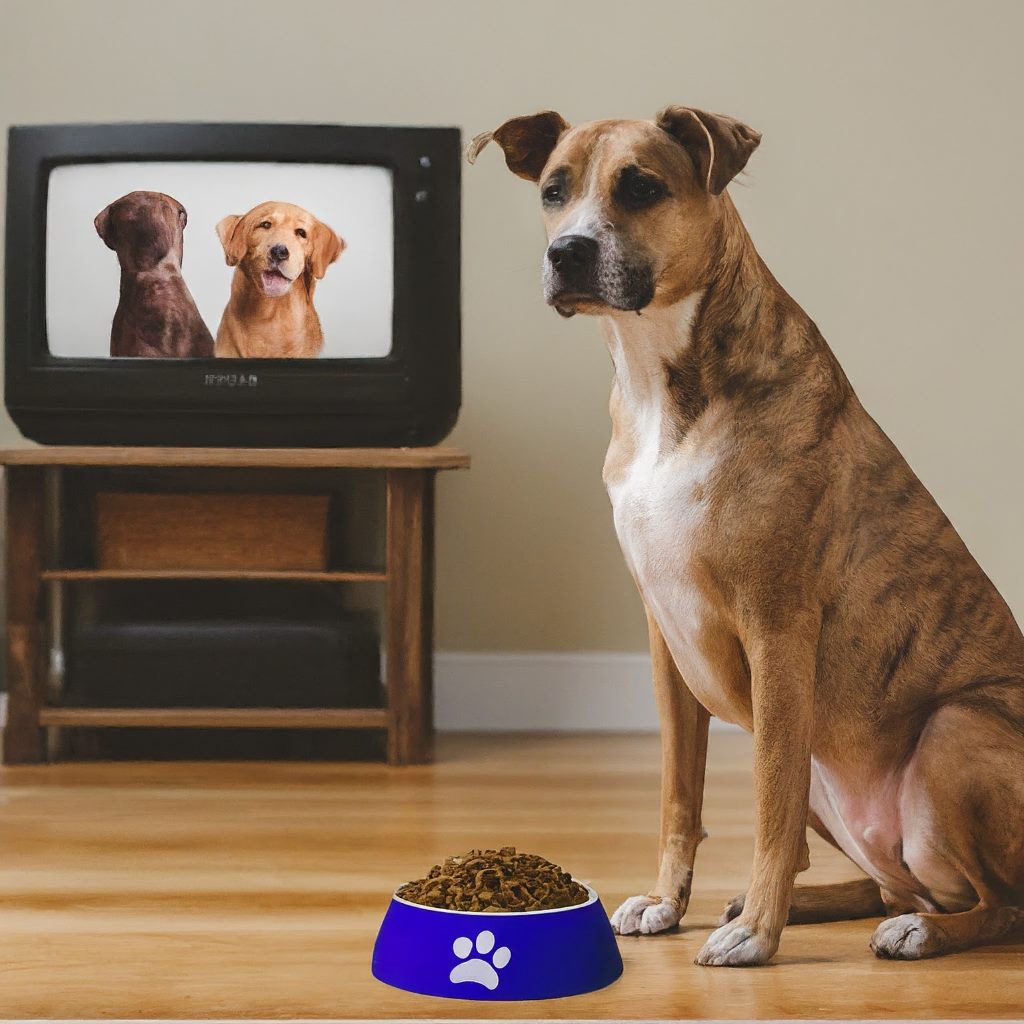As a dog owner, you’re likely familiar with the joys and challenges of mealtime routines. One common scenario that can leave pet owners puzzled is when their dog won’t eat breakfast but eagerly consumes dinner. While it may seem perplexing, this eating behavior is not uncommon among dogs. In this in-depth article, we’ll delve into the reasons behind this phenomenon, explore potential causes for a lack of appetite in the morning, and provide insights into managing your dog’s mealtime habits to ensure their overall health and well-being.
Post Contents
- Uneaten Breakfasts and Canine Eating Patterns
- Potential Reasons for Skipping Breakfast
- 1) Health Issues: A Possible Culprit
- 2) Anxiety or Stress: Emotional Factors
- 3) Routine and Environment: Mealtime Rituals
- 4) Food Preferences or Aversions: Canine Taste Buds
- 5) Overfeeding or Snacking: Satiety Matters
- 6) Lack of Exercise: Influencing Appetite
- 7) Temperature or Seasonal Changes: Appetite and Climate
- 8) Aging or Medical Conditions: Senior Dogs’ Appetite
- 9) Medical Factors: When to Consult a Veterinarian
- 10) Behavioral Factors: Routine and Anxiety
- 11) Food Preferences and Variability
- 12) Overnight Fasting
- Mealtime Strategies: Encouraging Breakfast Consumption
- Conclusion: Navigating Your Dog’s Eating Preferences
Uneaten Breakfasts and Canine Eating Patterns
Dogs are known for their voracious appetites and enthusiasm for mealtime. However, when your furry friend shows reluctance to eat breakfast while eagerly devouring dinner, it can raise questions and concerns. Understanding the underlying reasons for this behavior requires a closer look at both canine eating patterns and potential contributing factors.
Dogs, like humans, have individual eating habits that can vary widely. Some dogs are hearty eaters who eagerly anticipate each meal, while others may exhibit more selective eating behaviors. Additionally, dogs can develop preferences for specific types of food and mealtime routines.
Potential Reasons for Skipping Breakfast
Several factors could contribute to your dog’s reluctance to eat breakfast including Overnight Fasting, Feeding Routine, Medical Issues, Anxiety or Stress, Food Preferences, Overfeeding, lack of exercise, seasonal changes, aging etc
A dog’s eating habits are often a source of curiosity for pet owners. The dichotomy of skipping breakfast while enjoying dinner can be puzzling. To understand this behavior, we must delve into the multifaceted factors that influence a dog’s appetite and meal preferences.
1) Health Issues: A Possible Culprit
Underlying health issues could be at the root of your dog’s breakfast avoidance. Dental problems, digestive disorders, or nausea can make eating in the morning uncomfortable. Consult a veterinarian if your dog consistently rejects breakfast to rule out any medical concerns.
2) Anxiety or Stress: Emotional Factors
Dogs are sensitive creatures, and changes in their environment or routine can trigger anxiety or stress. New household dynamics, visitors, or separations can disrupt their appetite. Creating a calm and predictable mealtime environment can alleviate these emotional factors.
3) Routine and Environment: Mealtime Rituals
Dogs thrive on routines, and a shift in their daily schedule can impact their eating habits. If dinner is consistently associated with a specific routine or environment, your dog may be more inclined to eat during that time.
4) Food Preferences or Aversions: Canine Taste Buds
Just like humans, dogs have preferences when it comes to food. Your dog might simply prefer the taste or texture of their dinner over breakfast options. Experimenting with different types of food can help determine their preferences.
If your dog is not interested in their breakfast food, they may be more likely to skip it in favor of their dinner. This could be due to a variety of factors, such as the type of food, the temperature of the food, or the presentation of the food.
5) Overfeeding or Snacking: Satiety Matters
If your dog receives treats or snacks throughout the day, they might not have a substantial appetite in the morning. Monitor their overall caloric intake and ensure that treats are given in moderation.
6) Lack of Exercise: Influencing Appetite
Regular physical activity stimulates a dog’s appetite. A lack of exercise, particularly in the morning, could lead to reduced hunger. Incorporate morning walks or play sessions to stimulate their appetite.
7) Temperature or Seasonal Changes: Appetite and Climate
Temperature and seasonal changes can impact a dog’s appetite. Just like humans, dogs may feel less inclined to eat in extreme heat or cold. Ensure that their mealtime environment is comfortable.
8) Aging or Medical Conditions: Senior Dogs’ Appetite
As dogs age, their metabolism and appetite may change. Senior dogs might require more time to work up an appetite in the morning. Additionally, medical conditions common in older dogs can affect their eating patterns.
9) Medical Factors: When to Consult a Veterinarian
Medical issues such as dental problems, digestive disorders (Colitis, GDV and pancreatitis), or metabolic conditions could be affecting their appetite. A thorough examination can help rule out any underlying health concerns.
10) Behavioral Factors: Routine and Anxiety
Dogs thrive on routines, and sudden changes in their daily schedule can impact their eating habits. Additionally, anxiety or stress can lead to a decreased appetite. Events such as visitors, changes in the household, or being left alone can trigger stress-related eating issues.
11) Food Preferences and Variability
Dogs can develop preferences for certain foods and textures. It’s possible that your dog prefers the taste or texture of the food served during dinner, leading to their increased appetite in the evening.
12) Overnight Fasting
Dogs have a natural tendency to fast during the night, similar to how humans fast during sleep. This could lead to a temporary decrease in appetite in the morning.

Mealtime Strategies: Encouraging Breakfast Consumption
To encourage your dog to eat breakfast, consider these strategies:
1. Establish a Routine: Aim for consistency in mealtime routines to help regulate your dog’s appetite.
2. Smaller Dinners: If your dog consumes a large dinner, they may be less hungry in the morning. Adjust portion sizes accordingly.
3. Offer High-Value Treats: Incorporate appetizing treats into your dog’s breakfast to pique their interest.
4. Interactive Feeders: Use puzzle feeders or toys that dispense food to make breakfast more engaging.
5. Warm Up the Food: Warming the food slightly can enhance its aroma, making it more appealing.
6. Address Anxiety: If stress or anxiety is a factor, work on gradually acclimating your dog to triggers that cause stress.
7.Ensuring Adequate Nutrition: If your dog consistently skips breakfast, ensure they are receiving sufficient nutrition through the rest of their meals. Consult your veterinarian to confirm that their overall diet meets their nutritional needs.
8. Creating a Balanced Meal Schedule: A balanced meal schedule that accommodates your dog’s eating preferences while ensuring proper nutrition is essential. Whether your dog prefers to eat dinner or breakfast, aim to provide meals at regular intervals to maintain their overall health and energy levels.
Understanding your dog’s eating habits and preferences is an integral part of responsible pet ownership. While the phenomenon of skipping breakfast but eating dinner might seem puzzling, it’s essential to consider a range of factors, including routines, medical issues, and behavioral patterns.
By maintaining a consistent meal schedule, addressing any underlying health concerns, and offering a variety of mealtime strategies, you can ensure that your beloved canine companion receives the nourishment and care they need to thrive. Remember, every dog is unique, so taking the time to observe and respond to their individual needs will strengthen the bond you share and contribute to their overall well-being.

94% of pet owners say their animal pal makes them smile more than once a day. In 2007, I realized that I was made for saving Animals. My father is a Vet, and I think every pet deserves one. I started this blog, “InPetCare”, in 2019 with my father to enlighten a wider audience.
